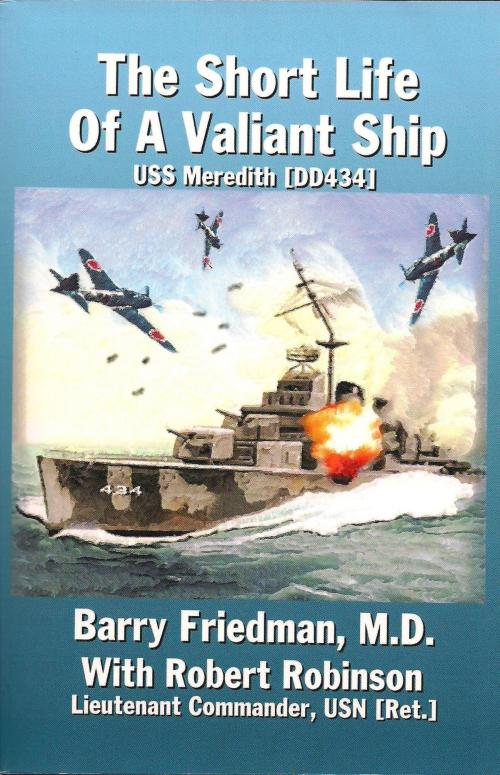| Author: | Barry Friedman | ISBN: | 9781458124074 |
| Publisher: | Barry Friedman | Publication: | March 27, 2011 |
| Imprint: | Smashwords Edition | Language: | English |
| Author: | Barry Friedman |
| ISBN: | 9781458124074 |
| Publisher: | Barry Friedman |
| Publication: | March 27, 2011 |
| Imprint: | Smashwords Edition |
| Language: | English |
On October 15, 1942 the destroyer USS Meredith, escorting the tug USS Vireo, towing a barge loaded with fuel and ammunition desperately needed by the troops on Guadalcanal, was attacked by Japanese aircraft carrier planes. When the attack seemed imminent, the crew of the lightly armed Vireo was transferred to the destroyer. Overwhelmed by the plane’s bombs and torpedoes, the Meredith sank within minutes. The men who survived the assault floated in the oil-coated ocean for four days, enduring strafing by Japanese planes, dehydration, and the pain of infected wounds and burns. They watched helplessly while their comrades died or drowned or were devoured by sharks. Only ninety-six of the 329 crewmen of both ships, survived to be rescued.
Although the saga is little more than a footnote in official Naval reports of World War II, the dramatic story as told by the survivors deserves to be heard by a wider audience. In addition to the extended families of the ships’ crewmembers, and to readers of action-adventure stories, the narrative will be of particular interest to maritime historians, to the 25,000 members of The National Association of Destroyer Veterans, and to the thousands of men and women who have served or are serving in ships of all types.
On October 15, 1942 the destroyer USS Meredith, escorting the tug USS Vireo, towing a barge loaded with fuel and ammunition desperately needed by the troops on Guadalcanal, was attacked by Japanese aircraft carrier planes. When the attack seemed imminent, the crew of the lightly armed Vireo was transferred to the destroyer. Overwhelmed by the plane’s bombs and torpedoes, the Meredith sank within minutes. The men who survived the assault floated in the oil-coated ocean for four days, enduring strafing by Japanese planes, dehydration, and the pain of infected wounds and burns. They watched helplessly while their comrades died or drowned or were devoured by sharks. Only ninety-six of the 329 crewmen of both ships, survived to be rescued.
Although the saga is little more than a footnote in official Naval reports of World War II, the dramatic story as told by the survivors deserves to be heard by a wider audience. In addition to the extended families of the ships’ crewmembers, and to readers of action-adventure stories, the narrative will be of particular interest to maritime historians, to the 25,000 members of The National Association of Destroyer Veterans, and to the thousands of men and women who have served or are serving in ships of all types.















